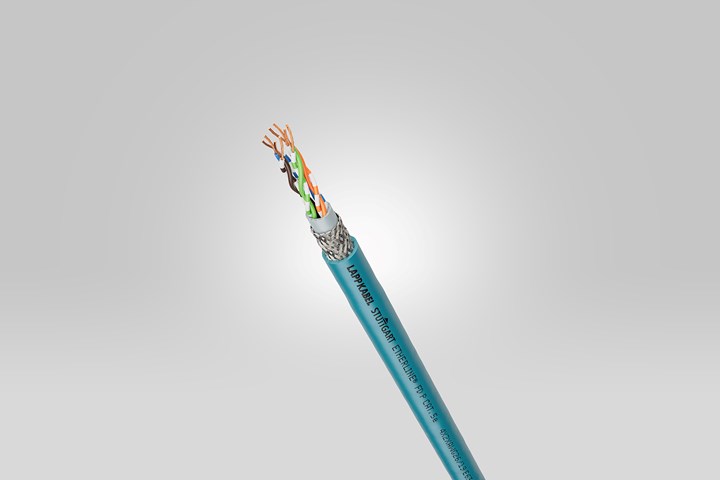Biobased TPU for Broad Range of Applications
BASF’s Elastollan N contains 50% renewable raw material.

A new biobased TPU for a broad range of applications is available from BASF. Elastollan N is a 50% corn-based bioplastic and was developed as a drop-in replacement for the company’s Elastollan TPU for extruding cable sheathing, hoses, belts, films and profiles, and can also blow molded and injection molded. In terms of its life cycle assessment, the biobased TPU is said to achieve an improvement in CO2 footprint of approximately 15%. It also boasts the same processability and extrusion profiles achieved with traditional Elastollan鈥疶PU.
Cable manufacturer LAPP (U.S. office in Florham Park, N.J.) recently unveiled what is said to be the first ethernet cable with biobased sheathing. The Etherline FD P Cat.5e for industrial ethernet has been part of the LAPP portfolio for a long time and is ideal for patch cable applications and also for cable chains. Now the product line has replaced fossil fuel derived Elastolan TPU with the more sustainable variant. Step-by-step, LAPP is also aiming to further expand its portfolio of biobased sheath materials. Said U.I. Lapp GmbH’s head of cable products development Alexander Terpe, “Using plastics from rapidly renewable raw materials with an organic basis is a great way for us to reduce the need for plastics from fossil raw materials and at the same time reduce the carbon footprint of our products.”
Related Content
-
Medical Grade TPEs for Biopharmaceutical Tubing
Teknor Apex expands its Medalist TPE portfolio.
-
Thermoplastic Elastomers With Recycled Content for Automotive Applications
Avient announced new grades of TPE to meet demand for recycled content.
-
GEON Performance Solutions Buys PolymaxTPE
Combined company aims to be global leader in thermoplastic elastomers.



